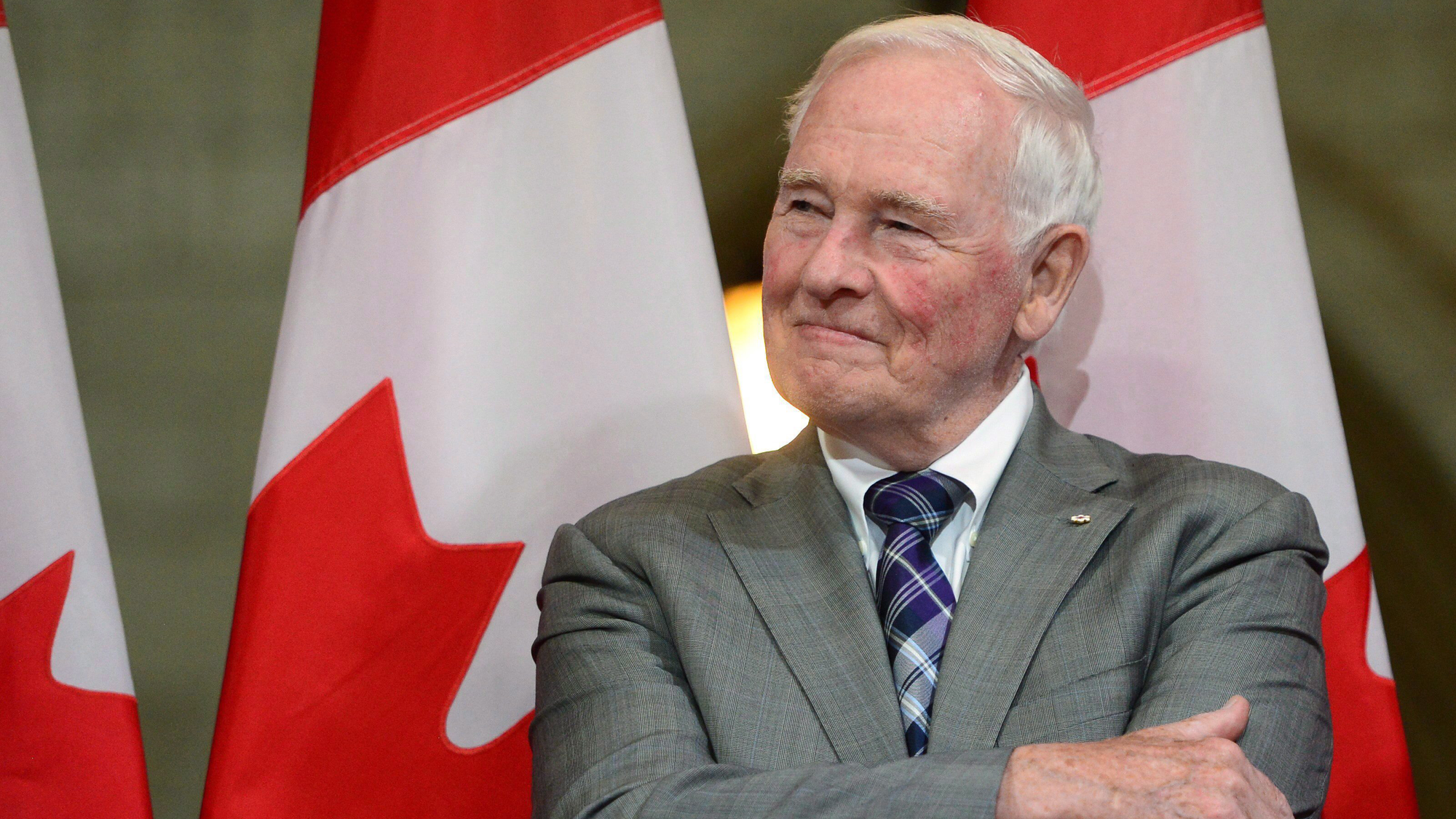Former governor general David Johnston rejected calls to launch a public inquiry into foreign interference in his interim report released Tuesday noon.
Johnston, who was appointed in March by Prime Minister Justin Trudeau as the special rapporteur on foreign interference, said his initial view was to recommend a public inquiry, but ultimately decided against it since classified information can’t be discussed publicly.
He also said a public inquiry would duplicate his work as the commissioner leading such inquiry will only have access to the same intelligence he has already reviewed.
Johnston instead recommended holding public hearings, which won’t address factual questions on specific allegations but discuss broader policy issues.
Areas to be covered by public hearings aren’t limited to electoral interference, but also include addressing diaspora concerns and communicating intelligence, he said.
Arthur Wilczynski, a former director general of the Foreign Affairs Department, said while public hearings are a positive step, they lack the formality and rigour a public inquiry can bring.
Wilczynski also said Johnston may not be the best person leading public hearings because perception of his impartiality has been damaged by partisan attacks.
“I have immense respect for the man,” he said. “But the reality is that those attacks have been effective in undermining his reputation and his credibility with too great a swath of Canadian society.”
Passing the torch to another independent public inquiry commissioner means a broader swath of Canadians will trust future work combating foreign interference, he said.
“Like Mr. Johnson said this, the Prime Minister said this yesterday, democracy is about trust,” he said. “I think the main objective of whatever happens now is to rebuild trust in the institutions, in the democratic process.”
Wilczynski said there have been public inquiries dealing with classified information, such as the Maher Arar inquiry in 2006 which looked into the torture of a Syrian-Canadian citizen.
“Would these reports be made public? No,” he said. “But I think that there would have potentially greater confidence in the conclusions if there is a more robust and more independent examination of the situation.”
Margaret McCuiag-Johnston, a senior fellow at the Graduate School of Public and International Affairs of the University of Ottawa, said Johnston’s report showed intelligence can be discussed publicly.
“He took you to the Globe and Mail and Global News items, and he went through every one in detail and said exactly what happened in every case, and who knew what, and how they found out, and what foreign interference actually happened and what hadn’t yet happened but was being contemplated,” McCuiag-Johnston said.
She said the report lacked clarity on how China has interfered with Canadian politics beyond the few leaked examples from media reports.
“That’s something that a public inquiry could look into,” McCuiag-Johnston said. “It wouldn’t make all the details like the source of the information of CSIS public, because that might put someone in jeopardy.
“But certainly we’ve got enough information on those seven or eight infringements that he could write up in his report exactly what happened in those cases, so let’s have a report that talks about all the rest of the activities that China was doing,” she said.
McCuiag-Johnston said the report lacked concrete recommendations on how the Canadian government should combat foreign interference.
She said although Johnston can make further recommendations, it’s unlikely to have a comprehensive review of foreign interference through public hearings alone.
“The hearings that he’s suggesting are not the venue for getting all the information that he needs to assess and report on,” she said.
Johnston’s appointment followed media reports on leaked intelligence which accused China of interfering with the 2019 and 2021 federal elections.
He was given the mandate to review classified information and was required to give interim recommendations including whether to launch a public inquiry by May 23.
Both the Conservatives and the NDP said they are disappointed at Johnston’s decision.
Conservative Leader Pierre Poilievre said only a full public inquiry can get to the bottom of China’s interference in Canadian democracy.
NDP leader Jagmeet Singh said anything short of an independent public inquiry into foreign interference is not good enough.
Tuesday’s report marked the first phase of Johnston’s work. He is expected to give further recommendations on how to protect Canadian democracy by Oct. 31.

